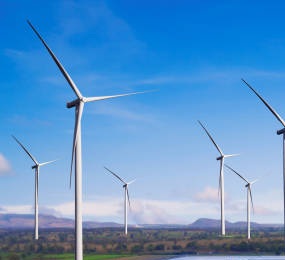Central and Eastern Europe (CEE) stands at a critical juncture in its energy transition. With a legacy of reliance on fossil fuels, the region faces the dual challenge of decarbonizing its energy systems while ensuring energy security and economic growth. The emergence of the hydrogen economy presents a unique opportunity to address these challenges and unlock new avenues for sustainable development.
Hydrogen's Potential for CEE:
- Decarbonizing Industry: CEE boasts a strong industrial base, particularly in sectors like steel, chemicals, and heavy industry, which are significant emitters of greenhouse gases. Hydrogen offers a clean alternative fuel for these sectors, enabling them to decarbonize their operations and remain competitive in the global market.
- Renewable Energy Integration: CEE possesses abundant renewable energy resources, particularly wind and solar. Green hydrogen, produced from renewable electricity, can effectively store and utilize this intermittent energy, enhancing grid stability and enabling deeper renewable energy penetration.
- Energy Security: By diversifying its energy mix and reducing reliance on fossil fuel imports, hydrogen can enhance energy security for CEE countries.
- Economic Growth: The development of a hydrogen economy can create new jobs, stimulate innovation, and attract investment, fostering economic growth and regional development.
Challenges and Opportunities:
- Infrastructure Development: Building a robust hydrogen infrastructure, including production, storage, and distribution networks, will be crucial for the successful deployment of hydrogen technologies.
- Technological Advancements: Continued research and development are essential to improve the efficiency and cost-effectiveness of hydrogen production, storage, and utilization technologies.
- Policy Framework: Establishing clear and supportive policy frameworks, including investment incentives, regulatory guidelines, and market mechanisms, is vital to attract investment and accelerate hydrogen deployment.
- Regional Cooperation: Regional collaboration among CEE countries can facilitate the development of a regional hydrogen market, enabling cross-border trade and promoting economies of scale.
The hydrogen economy presents a significant opportunity for Central and Eastern Europe to achieve its climate goals, enhance energy security, and drive sustainable economic growth. By embracing this transformative technology and addressing the associated challenges, CEE countries can position themselves as leaders in the global hydrogen market and contribute to a cleaner, more sustainable future.
For more details and registration information, visit https://bit.ly/47fv861
For more information and group participation, contact us: [email protected]
















